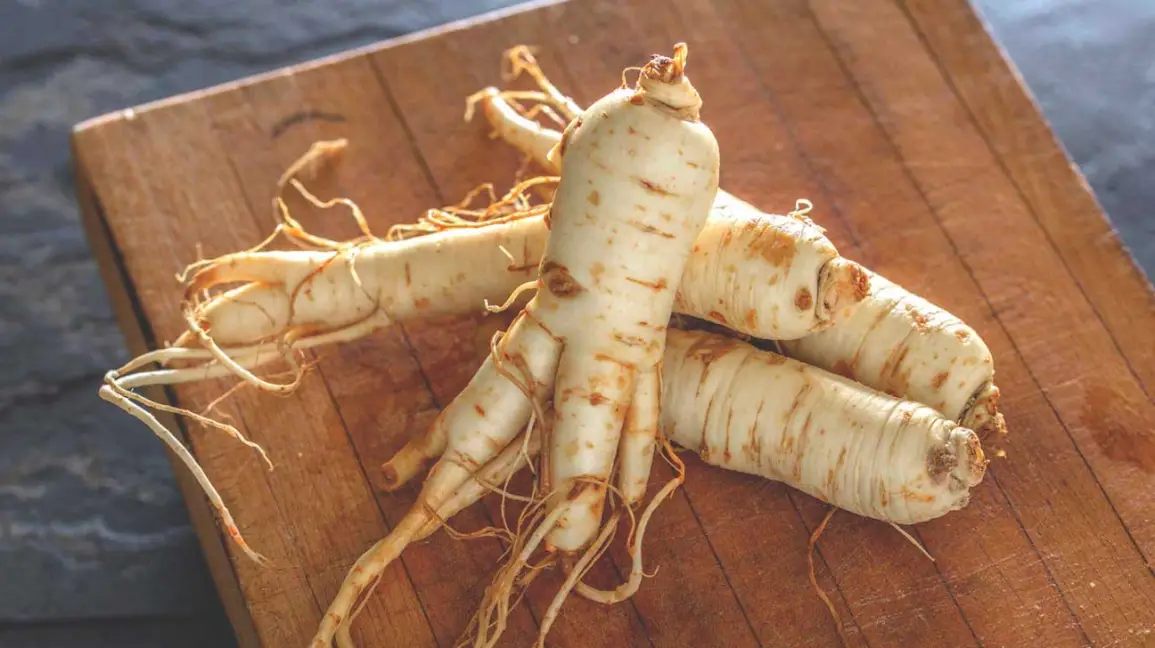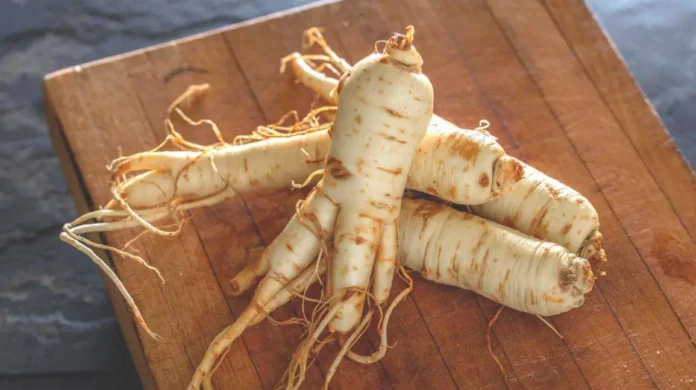Maintaining optimal blood sugar levels is vital for overall well-being. Imbalanced blood sugar can disrupt the body’s normal functions and potentially lead to complications if not effectively managed.
Nature offers a range of herbs and spices that have demonstrated potential to assist with blood sugar regulation. These natural remedies hold promise for individuals dealing with diabetes or pre-diabetes, and some even show evidence of safeguarding against acute and chronic illnesses, including cardiovascular conditions and specific respiratory ailments. Continue reading to discover six herbs renowned for their ability to help lower blood sugar levels.
6 Herbs for Blood Sugar Control
Let’s delve into the world of herbs and spices that excel in promoting balanced blood sugar levels.
1. Fenugreek

Fenugreek seeds are rich in soluble fiber, which plays a crucial role in lowering blood sugar levels by slowing down the process of digestion and carbohydrate absorption. Due to this property, there is significant interest in the potential of these seeds for managing diabetes.
Numerous clinical trials have provided evidence that fenugreek seeds can effectively improve metabolic symptoms associated with both type 1 and type 2 diabetes by reducing blood sugar levels.
For instance, a study conducted in India revealed that patients with type 2 diabetes who consumed 10 grams of fenugreek seeds soaked in hot water daily for six months experienced a noteworthy decrease in fasting blood sugar levels and HbA1c levels, which represent the average blood sugar levels over the preceding two to three months.
Another study demonstrated that individuals with type 1 diabetes who consumed 100 grams of defatted fenugreek seed powder for ten days witnessed substantial reductions in fasting blood sugar levels, along with enhanced results in glucose tolerance tests. Additionally, there were significant decreases in total cholesterol, low-density lipoprotein (LDL or “bad” cholesterol), and triglyceride levels.
These findings highlight the potential of fenugreek seeds as a natural aid in managing blood sugar levels for individuals with diabetes.
2. Gymnema

Although the precise mechanisms remain uncertain, Gymnema contains active compounds that appear to affect sugar absorption in the intestines. Additionally, Gymnema is believed to enhance insulin production within the body and stimulate pancreatic cell growth, which plays a pivotal role in insulin production. Insulin, in turn, regulates blood sugar levels by prompting the liver, muscles, and fat cells to absorb sugar from the bloodstream.
A study involving patients with type 1 diabetes who consumed a daily dose of 400 mg of water-soluble gymnema extract observed a decrease in insulin requirements and fasting blood sugar levels. Furthermore, there was a notable reduction in HbA1c levels, which indicates long-term blood sugar control.
Specifically, the “Garmin” peptide found in gymnema leaf extract has been shown to interfere with the taste buds on the tongue, diminishing the ability to perceive sweetness and bitterness. This inhibition of sweet taste sensation may lead individuals to reduce their consumption of sweet foods, contributing to the herb’s blood sugar-lowering effects.
In a different context, cinnamon has demonstrated an association with the delay of stomach emptying and a substantial reduction in post-meal high blood sugar levels.
3. Cinnamon

Cinnamon, widely recognized for its culinary applications, has garnered attention for its potential therapeutic benefits, particularly in blood sugar management and insulin sensitivity.
A study conducted in China revealed that supplementing with 500 mg of water-extracted cinnamon for two months led to significant reductions in fasting insulin, glucose levels, total cholesterol, and LDL cholesterol. It also improved insulin sensitivity in both people of all genders with elevated blood sugar levels.
Furthermore, in a study involving individuals with type 2 diabetes, the consumption of 1 g, 3 g, or 6 g of cinnamon daily resulted in lowered fasting glucose levels, decreased triglycerides, reduced LDL cholesterol, and a drop in total cholesterol. The study’s authors suggest that incorporating cinnamon into the diets of individuals with type 2 diabetes can mitigate risk factors associated with both diabetes and cardiovascular diseases.
In another study, healthy subjects with no history of gastrointestinal issues, abdominal surgery, or diabetes consumed 6 g of cinnamon, which resulted in the slowing of stomach emptying and a significant reduction in post-meal high blood sugar levels.
4. Ginseng

Ginseng extract derived from various sources, including Korean red ginseng and American ginseng, ranks among the most renowned and extensively utilized herbal remedies globally. Rooted in millennia of traditional Eastern medicine, ginseng has been harnessed to boost energy, alleviate stress, and harmonize the body. More recently, its potential in blood sugar management has garnered research attention.
A 2016 meta-analysis of eight studies uncovered notable benefits of incorporating ginseng into treatment regimens for individuals with type 2 diabetes. These advantages encompassed enhancements in fasting blood sugar levels and increased insulin sensitivity. Additionally, the analysis revealed favorable impacts on triglycerides, total cholesterol, and LDL cholesterol levels attributable to ginseng consumption.
Another meta-analysis corroborated these findings, highlighting that ginseng, albeit moderately, significantly ameliorated fasting blood sugar levels in individuals both with and without diabetes.
5. Turmeric

Turmeric, a spice commonly found in Asian cuisine and curries, not only imparts a vibrant yellow hue to dishes but also boasts a plethora of medicinal properties. Research indicates that turmeric has the potential to lower fasting blood sugar levels, particularly when used in conjunction with metformin.
Curcumin, the primary active constituent in turmeric, is widely believed to bear responsibility for many of the spice’s suggested health benefits, including its involvement in blood sugar regulation. A study involving 60 diabetes patients demonstrated that when combined with metformin, turmeric exhibited the ability to reduce fasting blood sugar levels.
In a separate study involving 240 individuals in Thailand, curcumin showed promise in preventing the progression from prediabetes to type 2 diabetes. While 16% of participants in the placebo group advanced to type 2 diabetes, none of those receiving a daily 250 mg curcumin supplement experienced progression. Moreover, individuals taking curcumin appeared to have better-functioning beta cells in the pancreas, responsible for insulin production and blood sugar regulation.
Yet another study focused on individuals with type 2 diabetes who received 500 mg of curcumin capsules three times a day for ten weeks. The results indicated lower fasting blood sugar levels, suggesting that curcumin may enhance the body’s ability to regulate blood sugar levels between meals.
A comprehensive review of studies conducted between 1998 and 2013 underscored curcumin’s role in mitigating various pathophysiological processes associated with high blood sugar and insulin resistance. This research suggests that curcumin aids in blood sugar control by:
- Enhancing the functioning of pancreatic beta cells.
- Reducing inflammation.
- Mitigating insulin resistance.
- Decreasing glucose production by the liver.
- Encouraging cells to absorb more glucose.
- Promoting insulin secretion by the pancreas.
Curcumin, the active compound in turmeric, is considered the driving force behind turmeric’s ability to assist in blood sugar management.
6. Green tea

Green tea, derived from the leaves of the Camellia sinensis plant, shows potential benefits for blood sugar regulation. A meta-analysis indicates that consuming green tea correlates with a reduction in fasting blood sugar levels, a decrease in HbA1c levels, and lower fasting insulin levels. These metrics act as blood sugar health indicators and are linked to diabetes.
Notably, a 2002 American study found that the addition of milk to tea can diminish the insulin-sensitizing effects of tea, highlighting the importance of consuming green tea in its pure form.
Furthermore, green tea contains a variety of natural compounds, including the antioxidant catechin. Catechin plays a role in managing the rapid spike in blood sugar that occurs after consuming quickly digestible carbohydrates like cornflakes, candy, white bread, and white rice. This suggests that green tea may assist in moderating post-meal blood sugar spikes.
The bottom line
For effective management of your blood sugar levels, it’s essential to adhere to healthy lifestyle practices. These include maintaining a diet rich in fiber, vegetables, lean protein, and healthy fats, engaging in regular physical activity, and managing stress levels.
While we know that many herbs and spices can assist in blood sugar control, it’s crucial to keep in mind that official medical approval for managing blood sugar has not been granted to many of these natural compounds.
Before considering the use of herbs or spices, especially in the form of supplements, to regulate blood sugar levels, it is strongly advisable to consult with your healthcare provider. This consultation will help ensure that any such interventions are both safe and suitable for your unique health requirements.https://en.wikipedia.org/wiki/Blood_sugar_level


